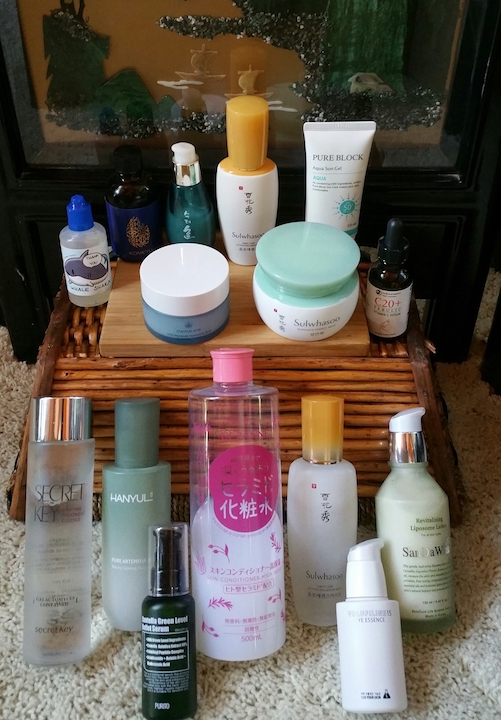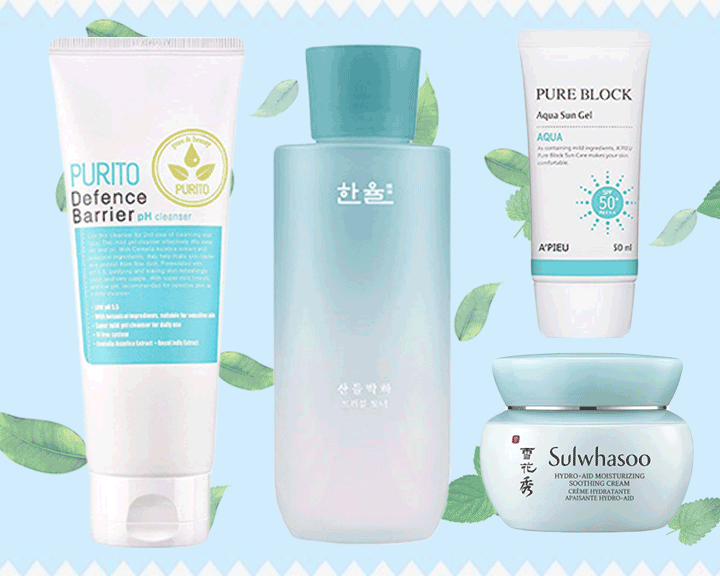Loyalty is an admirable trait — unless it involves skincare. Because when it comes to your face, it shouldn’t be about brand loyalty. It should be about being loyal to your skin’s needs and the ingredients that will meet them. Here’s why.
Confession: I’m a skincare slut. I sheet around, and I’m not ashamed. But I wasn’t always this way. I’ve been brand loyal most of my life, wooed by the infomercial illusion of flawless, poreless, ageless skin. As soon as I could afford a skincare routine, I signed on for the original Principal Secret line. I bought their entire “system,” and had it shipped every 90 days for at least five years. They even invited me to film a testimonial in 1992, but, “Really,” I thought, “who puts stock in reviews?” Ha!
Over the years, I approached skincare like romantic relationships: devoted for years until something went inexplicably wrong. I used Proactiv, Serious Skincare, and even bought into the Meaningful Beauty hype. Straight up: Their Superfine Exfoliant makes St. Ives feel like whipped cream.
Today, my loyalty lies not in a singular brand but in a unifying concept: being loyal to my skin’s needs.
Options? What Options?
Depending on your age, you may have grown up with endless choices for skincare, but some of us remember three distinct options: drug store, department store, and infomercial. For many people, myself included, brand loyalty started at the infomercial level with the “30-day money-back guarantee,” which devoted skincare enthusiasts know doesn’t always align with their skin’s cellular turnover.
Home shopping brought options out of the woodwork, and boutique brands we’d never seen in stores because of their small market share started pitching for our dollars … and our loyalty. Today, the options come directly to us by the brands themselves, which is why K-beauty stands (mostly) apart from the pack. You see, as a general rule, we’re pursuing them instead of the other way around. Who has the power now?

Accepting Meh Out of Fear
For many of us, brand loyalty is also rooted in fear. If a product has worked (mostly) consistently for a number of years, we hesitate to spend money on something new because, frankly, money ain’t easy to get. We’ll occasionally settle for less-than-stellar results from our “tried and true” rather than risk potential failure. And since it takes anywhere from 28 to 90 days (depending on your age) to see any real results, we’re often stuck with useless shit stuff that we feel duped for buying.
No Brand Gets Everything Right
When you have a general health question, you contact your primary care provider (I hope), but you visit a dentist if you have a toothache. Imagine relying on the same person for your yearly wellness check (i.e. pelvic and breast exam) as the one you go to for glasses. Many people buy everything from a specific brand on the assumption that all the products work synergistically and even work better because of the others in the lineup. But loving XYZ cleanser doesn’t mean their serum will deliver.
Sadly, the exuberant claims outnumber the results. Just look at the language in the above Google listing for Serious Skincare (the brand I mentioned using). See anything wrong here? I do! They don’t know me, and they sure as hell don’t know every single one of my “skincare concerns” because they come and go like a summer fling. Specialization has a purpose, but brands that claim to have something for every skin condition rarely live up to their own hype.
Why Ingredients (Not Brands) Deserve Our Loyalty
At some point in your life, and I’m guessing you’re already there, you have to do the legwork, the research, and the analysis to get the results you want. The days of trusting actresses and celebrities to know what’s best for our skin are gone because we now have access to the evidence ourselves. Thanks to amazing skincare bloggers, smart shopping sites, and a community of engaged skincare enthusiasts, we understand not only what to buy but how products work (like niacinamide and vitamin C — thank you, Kind of Stephen!).

While a good 30% of my skincare routine comes from one brand, I have at least five or six products that I consider “one-offs.” And you know why I stick with them? Because they each do the one thing I need them to do: Calm redness, reduce hyperpigmentation, soothe my pissed off tret face, and attempt to plump up my wrinkles. Knowing that results can be achieved without remaining committed to one brand opens up possibilities that brand loyalty never will. Thank you, K-beauty!
P.S. There’s not a single solitary product in my routine that was there four years ago, and that excites the hell out of me.
Have you ever suffered from blind brand loyalty and if so, what brand and why?
Loading...

